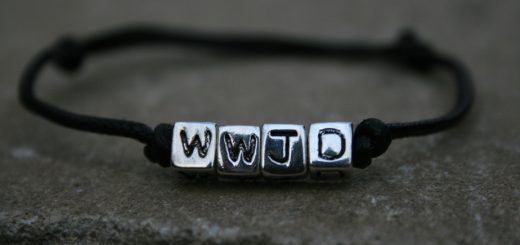Natural response #2: hiding under the covers
 This is naturally me. I am not good in a crisis. Everyone close to me knows that. I freeze. My body closes down. I’m screaming and panicking inside but I’m rooted to the spot. I play dead.
This is naturally me. I am not good in a crisis. Everyone close to me knows that. I freeze. My body closes down. I’m screaming and panicking inside but I’m rooted to the spot. I play dead.
There are those that naturally spring into action. I am not one of those people. I naturally want to run away. To close my eyes and hope it will all go away. To find the nearest cosy place with a blanket to cover my head with.
I am not alone. Humanity is divided between fight and flight. I’ve always been hard on myself, feeling it is pathetic that I am not a fighter. Not strong but weak. Not a survivor. Except flight is an equally valid survival technique. That’s why it is one half of the ‘natural response to fear’ equation.
It can be taken to extremes of course, just as the fight response can, as we saw yesterday.
There are those of us who protect themselves from hurt by pretending to themselves that they can protect themselves from the outside world. They don’t watch the news. They avoid political debate. They show no interest in world affairs. They keep themselves to themselves.
 They want to make Britain a safe place to live by closing the borders and keeping dangerous foreigners out. Put Britain first. Just as their home is their castle and they want to make that a safe place by closing their door and not letting anyone in. As they come in, they close the door and forget about the outside world. They light candles, open a bottle of wine, unwrap the chocolate, listen to music and shut out the needs of the world. Escapism is their best friend – losing themselves in a good book or becoming obsessed with the latest reality TV show. Their bed is their safe place and sleep is the ultimate escape.
They want to make Britain a safe place to live by closing the borders and keeping dangerous foreigners out. Put Britain first. Just as their home is their castle and they want to make that a safe place by closing their door and not letting anyone in. As they come in, they close the door and forget about the outside world. They light candles, open a bottle of wine, unwrap the chocolate, listen to music and shut out the needs of the world. Escapism is their best friend – losing themselves in a good book or becoming obsessed with the latest reality TV show. Their bed is their safe place and sleep is the ultimate escape.
They protect themselves from getting hurt by never letting anyone get too close. They protect their children by keeping them close to home. They keep everyone at a distance. They don’t trust anyone. It’s safer that way. They avoid taking risks. They resist leaving their comfort zone. They find all sorts of excuses never to try anything new.
 They never ask anyone how they are for fear of the response. They avoid meeting people face to face who are going through a tough time, because they don’t know what to say. They hope that other people – people that are better trained in what to do and say – are out there helping. They send a text or a Facebook message or a card through the door and then feel they have done their bit. They respond to charity appeals on the TV by giving by text or phoning in and then feel they have done their bit.
They never ask anyone how they are for fear of the response. They avoid meeting people face to face who are going through a tough time, because they don’t know what to say. They hope that other people – people that are better trained in what to do and say – are out there helping. They send a text or a Facebook message or a card through the door and then feel they have done their bit. They respond to charity appeals on the TV by giving by text or phoning in and then feel they have done their bit.
They respond from a distance. Always from a distance.
They leave the actual practical response to someone else.
That flowed.
Came from the heart.
Because although I said ‘they’, I could have said ‘I’. Or ‘We’.
That is my natural response. Which may surprise you because most of the time, that is not what my life looks like. That’s because while I recognise my natural response, I resist staying there. I try to push myself beyond that. Because Jesus teaches another way. Being that way is valid and important some of the time – we all need to recharge our batteries – but not all the time. Jesus has a better way. Where being involved in the world is not an option – it is a command.
Love your neighbour as yourself.
Love others as well as you love yourself.
Distancing yourself from the needs of the world is not an option. Not if you are a follower of the way. Closing the door and simply protecting yourself and your family from hurt and risk is not an option.
Let’s remind ourselves of the sobering story of the sheep and the goats – not that this should be our motivation to engage with the needs of the world, because that should flow out from the love of God within us – once we have overcome our fears! But because it shows how much engaging matters to Jesus. And therefore how much it should matter to us.
When he finally arrives, blazing in beauty and all his angels with him, the Son of Man will take his place on his glorious throne. Then all the nations will be arranged before him and he will sort the people out, much as a shepherd sorts out sheep and goats, putting sheep to his right and goats to his left.
Then the King will say to those on his right, ‘Enter, you who are blessed by my Father! Take what’s coming to you in this kingdom. It’s been ready for you since the world’s foundation. And here’s why:
I was hungry and you fed me,
I was thirsty and you gave me a drink,
I was homeless and you gave me a room,
I was shivering and you gave me clothes,
I was sick and you stopped to visit,
I was in prison and you came to me.’Then those ‘sheep’ are going to say, ‘Master, what are you talking about? When did we ever see you hungry and feed you, thirsty and give you a drink? And when did we ever see you sick or in prison and come to you?’
Then the King will say, ‘I’m telling the solemn truth: Whenever you did one of these things to someone overlooked or ignored, that was me—you did it to me.’
Then he will turn to the ‘goats,’ the ones on his left, and say, ‘Get out, worthless goats! You’re good for nothing but the fires of hell. And why? Because—
I was hungry and you gave me no meal,
I was thirsty and you gave me no drink,
I was homeless and you gave me no bed,
I was shivering and you gave me no clothes,
Sick and in prison, and you never visited.’Then those ‘goats’ are going to say, ‘Master, what are you talking about? When did we ever see you hungry or thirsty or homeless or shivering or sick or in prison and didn’t help?’
He will answer them, ‘I’m telling the solemn truth: Whenever you failed to do one of these things to someone who was being overlooked or ignored, that was me—you failed to do it to me.’ Matthew 25:31-45
And what does all this have to do with Nehemiah, you may well ask?
When he hears the sad news of his people in Jerusalem, does he shed some tears and then get over it and carry on with his everyday life?
No. His whole response comes from a place of ‘What can I do to help?’
What can I do to help?
What can I do to help?













